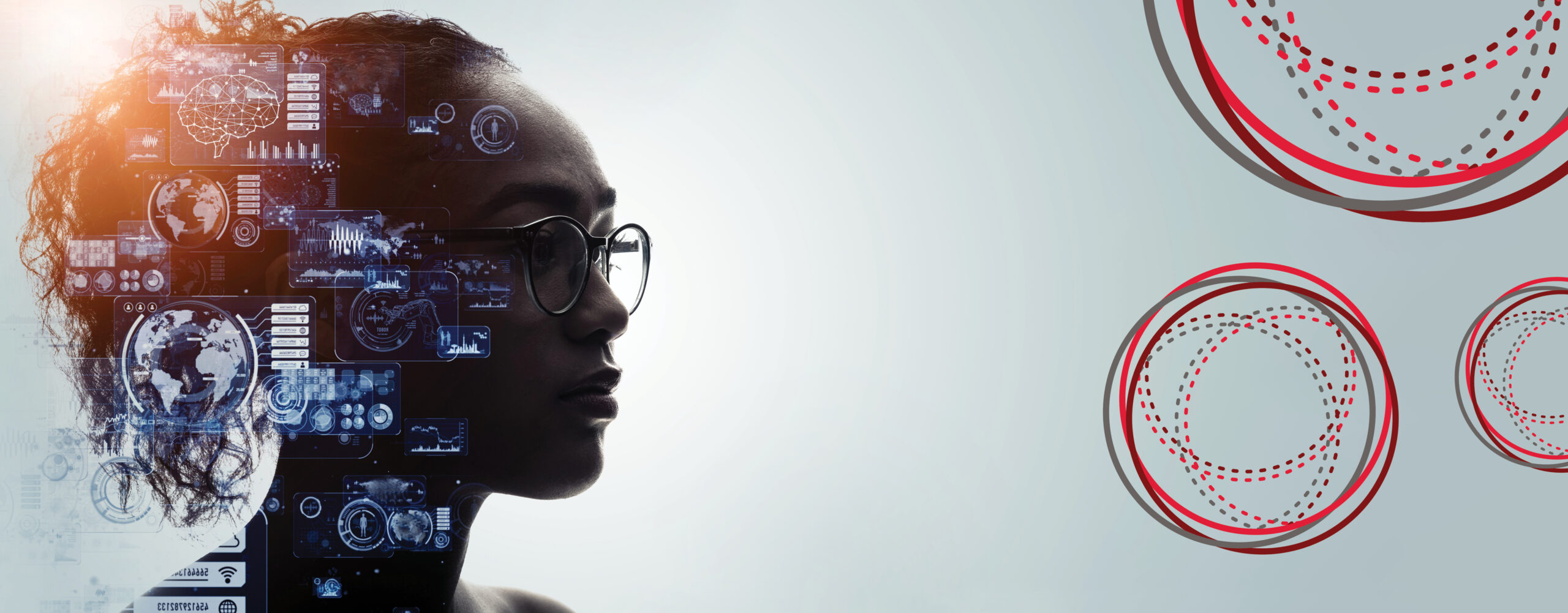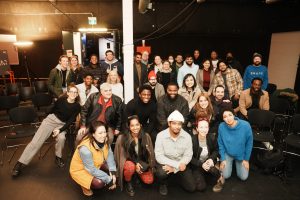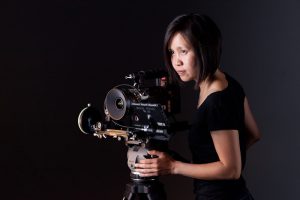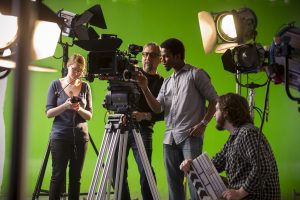York University leads groundbreaking research to ensure technology revolution leaves no one behind

36 AMPD researchers join the $318-million Connected Minds initiative to bring equity and inclusion to the murky waters of AI
A massive seven-year interdisciplinary research initiative led by York University – backed by substantial federal research funding — is setting out to tame the unruly world of AI and other disruptive technologies, so humans can benefit equitably from advances in a machine-driven world.
Along with marvellous innovations in medicine, education and entertainment, rapidly emerging technological advancements are also delivering unintended consequences, and some communities are being left behind. Making sure everyone benefits from the technological boom reflects York’s signature mission to create positive change in the world, both locally and globally.
“We don’t want to slow progress in technology, but rather, work together to be more thoughtful about the consequences – and try to mitigate the negative outcomes and optimize the positive ones,” says Doug Crawford, a York University Distinguished Research Professor in Neuroscience who is the inaugural scientific director of the first-of-its-kind enterprise.
The Connected Minds project will bring together experts from York University and Queen’s University who are working across many different fields including liberal arts, engineering, health, law, life sciences, and the arts to develop a framework to guide future innovations in technology with a focus on inclusivity.
Thirty-six AMPD researchers have been tapped to join the project including AMPD Dean Sarah Bay-Cheng, Associate Dean (Academic) Michael Darroch, Associate Dean (Research) Laura Levin and faculty members Caitlin Fisher, Ian Garrett, Mark-David Hosale, Brandon Vickerd, Mary Bunch, Patricio Davila, Shital Desai, Jennifer Fisher, David Gelb, John Greyson, Jan Hadlaw, Amy Hillis, Magdalena Kazubowski-Houston, Katherine Knight, Nina Levitt, Michael Longford, Janine Marchessault, Taien Ng-Chan, Freya Björg Olafson, Joel Ong, Sarah Parson, Jamie Robinson, Kenneth Rogers, Gabi Schaffzin, Barbara Sellers-Young, Yifat Shaik, Don Sinclair, Donald Sinclair, Nell Tenhaaf, Jane Tingley, Graham Wakefield, Archer Pechawis and Doug Van Nort.
“Receiving this second CFREF award in the last two competitions reflects York’s leadership as a research-intensive university that from its inception has understood the importance of an interdisciplinary approach in tackling complex, global problems. Connected Minds is particularly timely as we consider the implications of AI for creating a more equitable and inclusive world,” says York president and vice-chancellor Rhonda Lenton.
The researchers say putting some parameters around technological disruption would avoid the type of headline-grabbing pitfalls experienced by the AI text generator ChatGPT, almost as soon as it hit the market. Guidelines would also ensure underrepresented groups could enjoy the benefits of our shifting and evolving technologies and play a role in their creation.
“York is an international leader in interdisciplinary research. The federal government’s substantial investment will unite York’s incredible strengths with Queen’s health specialties to chart new territory in socially responsible research for a rapidly changing digital world,” says Amir Asif, York University’s vice-president research and innovation.
“We’re seeing a changing society with increasing intermingling between humans and machines and a host of different technologies,” says Pina D’Agostino, vice director and founder of York University’s IP Innovation Clinic at Osgoode Hall Law School and vice-director of Connected Minds. “The social framework – the law – hasn’t kept pace. What we’re trying to do is develop technologies and frameworks that are socially responsible before they are disseminated in society, so we get ahead of the biases that may arise. That way underrepresented communities don’t get sidelined as technologies progress.”
The initiative’s equity focus will be applied to many projects that are already underway at the two universities, and also to the issue of Indigenous data sovereignty. Through an Indigenous Advisory Circle and partners, researchers hope to explore a framework for use of Indigenous Peoples’ data in a digital environment.
“Our work will seek to address the unexpected consequences of technological innovation, like the growing digital divide between broader society and Indigenous Peoples in terms of access to internet and also the colonization of it as well,” says Sean Hillier, associate director of York University’s Centre for Indigenous Knowledges & Language and associate director of Connected Minds.
“We continue to see researchers in Indigenous communities saying, ‘how do we implement ownership, access, control and possession of our knowledge in a virtual world?’ We don’t have the capacity to do so.”
Already, more than 50 community groups are stepping up to engage in the research, a signal that the initiative is tapping into a recognized need. The City of Vaughan, for example, has contributed $36 million in land. Mitacs, which funds research and innovation, has contributed $1 million for internships and trainees. The Baycrest Health Centre – Rotman Research Institute, which studies aging and the human brain, is giving $2 million.
Potential projects include explorations into a more inclusive metaverse, virtual reality and community organizing, technologies for healthy aging and how the human brain functions when people interact with AI versus each other.
“We’re trying to figure out the way machines work, but we also need to understand the way the human brain works,” explains D’Agostino. “That’s the secret sauce in the machines and the technology. As we try and blossom machines, we have to link them up to the way we think. Something like empathy, for instance, will they ever have that?”
Another project is an Indigenous online gaming metaverse in which Indigenous Peoples can learn traditional language and gaming at the same time by engaging in land-based learning that recognizes the physical, mental, and spiritual connection to the land that is part of Indigenous identity.
“We hope that with our checklist, anytime someone innovates they won’t only think from a mainstream perspective,” says D’Agostino.
Technological disruption is only going to grow, adds Crawford, and it’s not too late to create guidelines to shape the future in a way that incorporates the values of equity, diversity and inclusivity.
“Here at York and at Queen’s, we have engineers and scientists involved in a number of technologies, some of them related to health, transportation, communications and computer vision,” Crawford notes.
“We hope to bring this new perspective to that. The other part is developing the paradigm. If we are successful in that approach, then the aim is to beta test here at York and Queen’s and have a broader effect on the way research is done in Canada and the world,” he concludes.
The CFREF grant of $105.6 million dollars when combined with the contributions from multi-sector partners, municipal governments, and collaborating partners is valued at $318.4 million, making Connected Minds the biggest York-led research program in the University’s history.
Connected Minds will also expand Canada’s research power and create opportunities for early career up-and-comers.


